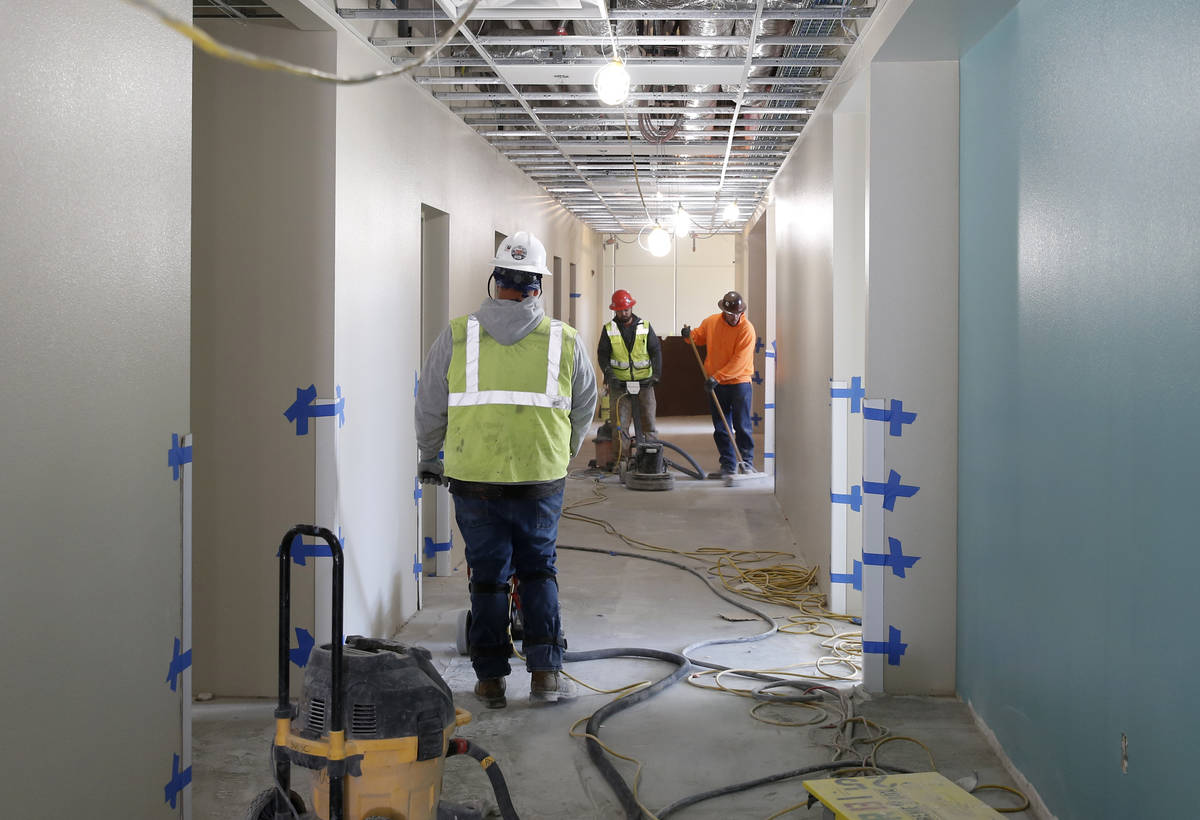EDITORIAL: Taxpayers deserve a say on extending school bonds
It’s rare to get such a clear glimpse of how Nevada’s education establishment believes it’s entitled to your money. Unfortunately, a bill being rushed through the Legislature provides such an opportunity.
In 1998, Clark County voters approved using property taxes to pay for 10 years of school construction. The school district issued bonds — government debt — to finance the new campuses. The bonds usually are paid off within 20 years.
At the time, the district was growing rapidly. Annual enrollment increases routinely topped 6 percent. The district went from under 200,000 students in 1998 to more than 300,000 students in 2008. That bond campaign created much of the current school district. The $4.9 billion raised led to 120 new schools.
District enrollment growth, however, has slowed considerably. Since 2009, annual growth hasn’t topped 2 percent and has been negative four times. The increasing popularity of charter schools likely explains how the Las Vegas area could add so many new residents without a corresponding increase in traditional public school enrollment.
One might logically conclude the district needs fewer dollars for construction. In theory, after the bonds issued in 2008 are paid off, property taxes should go down. It’s similar to paying off a personal mortgage.
But that theory doesn’t account for the district’s appetite for property tax dollars. In 2012, the district proposed a “temporary” — cue the laugh track — tax increase to pay for around $700 million in capital projects. Voters, still trying to dig out of the Great Recession, rejected that plan by a 2-to-1 margin.
Undaunted, the district turned to the Legislature. In 2015, lawmakers passed a bill allowing school districts to bond for 10 more years if voters had previously approved a bond measure. Unlike the 1998 proposal, this bill didn’t require voter approval.
Now, the Legislature is preparing to do that again. Senate Majority Leader Nicole Cannizzaro introduced Senate Bill 450 as an emergency measure just two weeks before the session ends. It would allow school districts another 10 years of bonding authority without having to seek voter approval.
There is no emergency here. The Clark County School District — and others — can already bond until 2025. This bill would allow districts to issue bonds for yet another 10-year interval, ending in 2035.
The bill has passed the Senate and is likely to pass the Assembly.
This is an effort to circumvent public accountability and would be a mistake. Voters deserve honesty from their elected officials and school districts. If CCSD officials want new bonding authority, they should ask voters in 2022 or 2024.






















